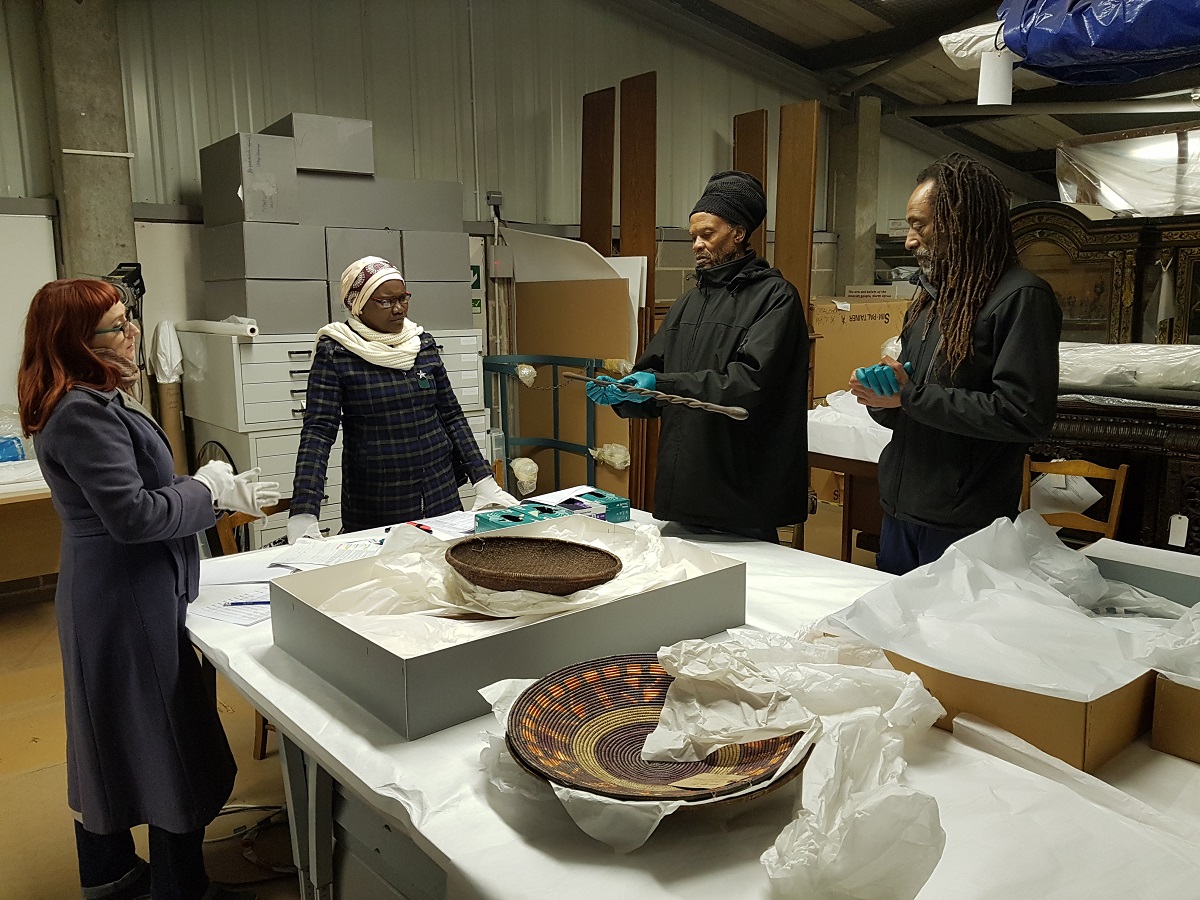
Contestable items in our collection
Statement 15 December 2021
Brighton Museum & Art Gallery opened in 1873 during the reign of Queen Victoria. Like other institutions at the time, its development took place alongside the growth of the British Empire.
Many of the objects which joined our collections were brought to the UK by British people from countries that were then British colonies.
The Museum holds material brought back from specific imperial campaigns. These include raids by British forces on Kumasi, capital of the Ashanti kingdom (in present-day Ghana) in 1874 and on Benin City (in present-day Nigeria) in 1897. Some of our objects were brought back by people who worked as colonial administrators, missionaries, explorers and military officials.
The Royal Pavilion & Museums Trust has some objects in its collection acquired through raids carried out as part of the British Punitive Expedition to Benin of 1897.
The Benin objects include:
- two carved wooden Oba heads (museum numbers WA509136 / R1426/1 and WA503003 / R1426/2) acquired from Miss F Steward in 1913 and described in the accessions register as “Two carved wooden heads obtained in 1897 during the punitive expedition to Benin“.
- a carved Edo elephant ivory tusk probably produced in the 19th century by a member of an ivory carvers’ guild for the king of Benin (museum number WA501245), which was donated to the Museum by GW Otter in 1956 but was formerly in the collection of Sir Henry Loder Bart, of Selehurst.
- a flat circular box with cover (museum numbers WA503001 / R2828/89) which was donated to the Museum by the Imperial Institute and which the original accessions register entry notes “This box appears to be old and was probably obtained by the Punitive Expedition at Benin“.
The tusk and one of the carved heads were previously on display at Brighton Museum from 2002 until 2011, but currently all these objects are in the reserve collections.
Our approach
We’ve been reflecting on what it means to hold colonial-era collections and, like museums elsewhere in the UK and across Europe, we realise we need to do more to be open about the way these objects were collected.
Royal Pavilion & Museums Trust are committed to sharing information as widely as possible and we are carrying out provenance research into items with potentially contested histories in the collections. We intend to work collaboratively with Africa-based researchers, institutions and communities from countries of origin, as well as with members of locally based African diaspora communities on the future curation of these items.
The museum has formed an exciting new partnership with the James Henry Green Trust to increase diversity and improve equality in the organisation, and this work will include carrying out research into the histories of our buildings and collections so that we can reflect on their legacies. Culture Change project
We are currently contributing to the ‘Digital Benin: Reconnecting Royal Art Treasures’ project led by Museum Am Rothenbaum, Hamburg to provide digital access to RPMT’s contested Benin collection.
Members of staff have contributed to the Museum Ethnographers Group events on the themes of Restitution and Repatriation and tackling offensive language in museum catalogues, in 2019 and 2021. We are taking part in the project ‘Devolving Restitution: African Collections in UK Museums Beyond London’
We are also working in partnership with the Khama III Memorial Museum in Serowe, Botswana, to loan items from our Willoughby Collection.
These items were originally collected by the missionary William Charles Willoughby in the Serowe area. Willoughby lived and worked in Brighton for a time in the late 19th century and his collection has been housed at Royal Pavilion & Museums Trust since 1899.
A grant awarded to the University of Sussex by the Arts and Humanities Research Council and funding from the James Henry Green Charitable Trust will allow Royal Pavilion & Museums Trust to loan a selection of these items from the Willoughby collection to the Khama III Memorial Museum through working closely with their staff.
Due to ongoing travel restrictions during the covid pandemic this loan has been postponed until 2022/23 but we are continuing to work with our Khama Museum partners on shared initiatives.
Returning objects to the country of origin
Royal Pavilion & Museums Trust have national accreditation which means that how we look after our collections is guided by a Collections Development Policy [PDF].
This states that when considering whether to return objects to countries of origin, the museum will make decisions “on a case by case basis; within its legal position and taking into account all ethical implications and available guidance”.
We encourage any individual, group or organisation wishing to make a claim for the return of an object or objects to get in touch with us at Royal Pavilion & Museums Trust through our online enquiry form.